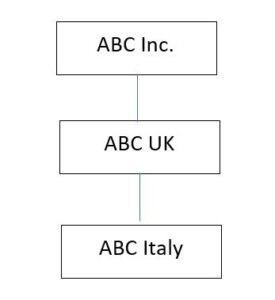Global Corporate Structure
August 24th, 2020

Land and Expand part II: Global corporate structure
Last month we introduced the first in our series of articles taking a short glimpse into Briars 18-stage roadmap. Our August newsletter focuses upon Global Leadership and in keeping with that theme lets consider the thought process of boards and investors as they develop their international footfall.
Professor Bob Garratt’s article challenges current thinking on the purpose of the board, its effectiveness and the role of investors. He also highlights the raft of legal duties placed upon directors: duties that come with an increasing burden of complex laws, leaving boards poorly placed to comply.
So how does the business demonstrate, exercise and adhere to best practice as it expands, achieving milestones and raising further investment?
As highlighted by the OECD in its Policy Framework for Investment “If countries are to reap the full benefits […] corporate governance arrangements […] adhere to internationally accepted principles”. Such a move should lead to investor comfort and smoother cross-border operations. Essentially, implementing policies that reflect international best practice significantly reduces risks for the board, investors and the work force.
Irrespective of the size of the corporation, attention should be paid to cascade from the board of stated policies addressing a range of issues, including supply chain, social cohesion, environmental and ethical practices. Make no mistake – this cannot be a “box ticking” exercise if it is to be effective. Countries are slowly legislating to ensure compliance. With this as the backdrop, tackling the corporate’s policies as it expands removes much of the risk of being in breach with local country regulations.
Let’s consider ABC Inc. (a non-listed company) and its plan to expand into Europe. We will assume that ABC’s industry sector does not require specific regulatory compliance. Our focus is on the generic.
ABC’s plans to create a wholly owned subsidiary in the UK with a branch of the UK Company in Italy.

There are two areas to address:
- Compliance impact on ABC
- Impact upon ABC’s key personnel.
ABC
We anticipate the Corporation will need to comply with a raft of policies, including GDPR, Anti-Money Laundering, Anti-Bribery & Corruption, Criminal Finances, local country civil codes and Companies Acts.
The UK/Italy Board of Directors
It is common for C-Suite employees to be appointed into such roles as part of their personal career development. This can lead to all parties overlooking the legal ramifications of such an assignment. A corporate board director carries legal responsibility for a broad range of actions or omissions, as highlighted in Bob Garratt’s report. As a “career enhancer” it can arrive with a sting in the tail as a result of personal liability applying to directors. For example, in Italy under the Environmental Law (152/2006 etal.) which gives rise to both civil and criminal actions relating to Health & Safety breaches.
Conclusion
With limited space, the aim of this article and August’s newsletter is to act as a highlight and catalyst to strengthen the push for global best practice. There is a definite need to create a comprehensive bank of detailed information to guide companies through the morass and that is Briars aim as we consolidate our international knowledge into one central repository, with your help.
As we approach our 29th birthday in September and having worked with clients and colleagues alike from across the globe, we do so with one aim in mind.
Making sure that you: our clients and friends can focus on your business growth safe in the knowledge that your Briars team has your corporate governance and compliance in hand.
If you have any questions about your future growth or currently have problems in an overseas location then please feel free to reach out to us at info@briarsgroup.com : we would be delighted to talk with you.
Copyright © 2024 Briars Group | All Rights Reserved | Read Our Cookie Policy
